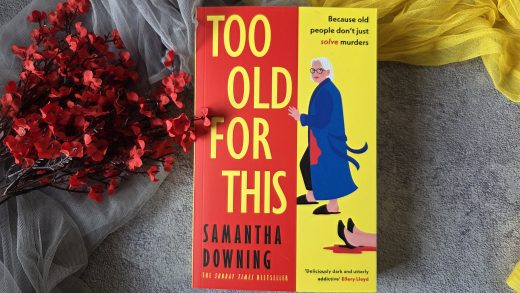 A Swedish debut that quietly undoes you
A Swedish debut that quietly undoes you
I feel like my chest has just been split open. Not violently, but tenderly—slowly, methodically, and with such quiet grace that I hardly realised until I was in pieces. When the Cranes Fly South is one of those novels that creeps up behind your defences, nestles into your heart, and then slowly breaks it. And I honestly wouldn’t have wanted it any other way.
Plot Summary
Set in the stark beauty of rural Sweden, the story follows Bo, an almost 90-year-old man whose mind remains sharp in places, but whose body and circumstances are failing him. His wife Fredrika no longer recognises him. His son Hans and the local carers are concerned. And his beloved dog Sixten—his last companion, anchor and confidante—is at risk of being taken away for Bo’s own safety.
The novel unfolds in short, spare chapters that read like memory fragments, inner monologues, and confessions written to Fredrika. It’s less linear narrative and more soul-mapping. We walk with Bo through quiet rooms, painful decisions, and decades-long regrets. His voice never falters—opinionated, observant, and heartbreakingly human.
 Themes
Themes
- Aging & Autonomy: Ridzén confronts what it means to lose independence slowly—how one’s agency can be negotiated, eroded, and sometimes mourned before it’s even gone.
- Masculinity & Grief: Bo is not a man who wears emotions loudly, and that’s exactly what makes his grief so resonant. It’s contained, stoic, raw in its restraint.
- Fatherhood & Legacy: There’s tension in the gap between love and expression—between what Bo wants to say, and what he feels able to. This silent chasm shapes his relationship with Hans.
- Memory & Identity: Through flashbacks and the unreliable terrain of aging memory, the novel paints a layered portrait of a life and the slow unravelling of self.
- End-of-Life Care: The notes from carers juxtaposed with Bo’s own thoughts are a masterstroke—shining light on the complexity of caregiving and dignity.
 What Worked for Me
What Worked for Me
- Bo’s voice: Honest, reflective, painfully restrained. He’s a character who lingers long after the final page.
- Sixten the dog: More than just a pet—Sixten embodies companionship, autonomy, and Bo’s final tether to the present.
- The structure: Short chapters made it impossible to stop reading. Each fragment felt like an emotional revelation.
- Tone: The prose never tips into sentimentality. Ridzén allows heartbreak to simmer in the quiet moments—in the silence after the carers leave, in the way Sixten curls beside Bo, in the way Bo still speaks to Fredrika.
- Ture’s presence: Bo’s best friend adds depth and warmth, reminding us that aging doesn’t cancel friendship, humour, or perspective.
Who Might Enjoy This
This is not a book for everyone, and that’s okay. But if you’ve ever loved an elderly relative, wrestled with end-of-life decisions, or felt the ache of watching someone forget who they are—you’ll find something devastatingly familiar here.
Fans of:
- A Man Called Ove by Fredrik Backman
- Quiet, literary fiction that prioritises emotion over plot
- Stories centred on aging, caregiving, and the complexities of masculinity
Conclusion
When the Cranes Fly South isn’t loud—it doesn’t scream its grief into the void. Instead, it murmurs, it stares out frost-covered windows, it hugs its dog tighter. Lisa Ridzén has written a debut that’s deeply moving, emotionally intelligent, and quietly unforgettable.
But please—don’t read the final chapters in public.
Thank you to Penguin Random House SA for the opportunity to read this book.

 Themes
Themes What Worked for Me
What Worked for Me

